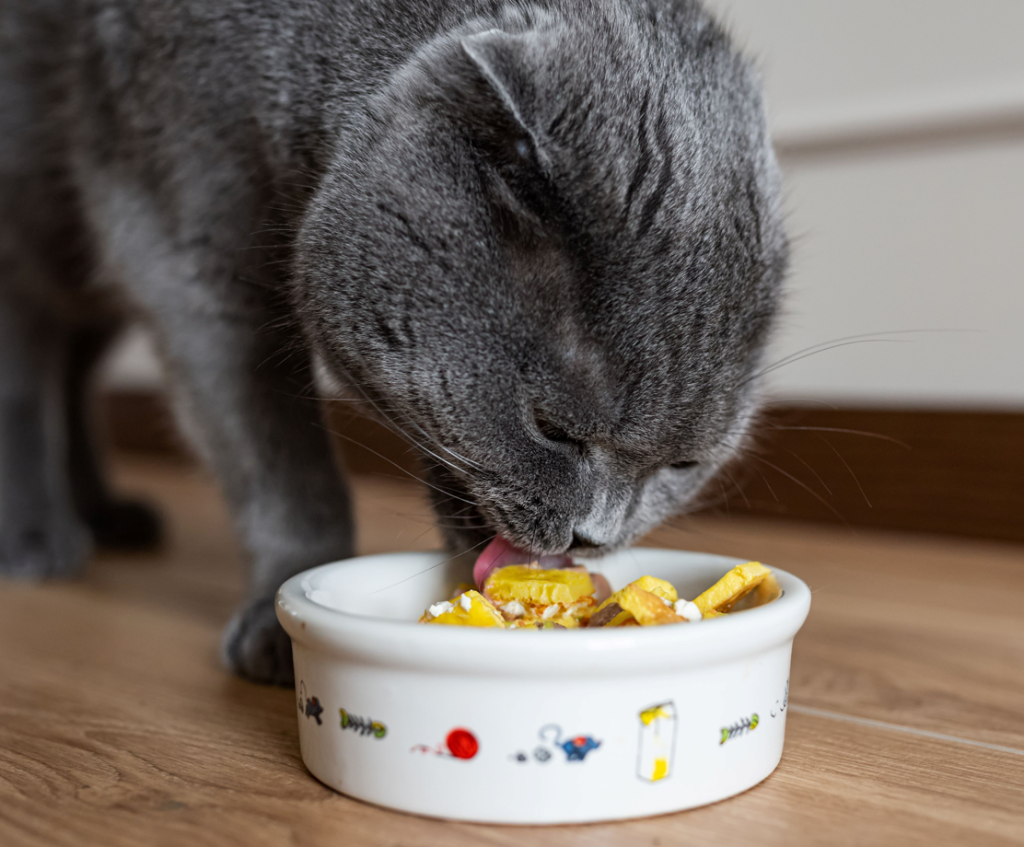Pictures of cats crawling on a plate of milk are common, but what happens as they grow older? Is dairy bad for cats, and if not, is it okay for cats to eat cheese?
Even if your pet friend is curious about from the kitchen counter if you want to give them a delicious meal, it is always wise to make sure every time you bring fresh food to cat food. Their digestive system can be very sensitive, and too much human food safe for us to eat can cause health effects in animals.
By the end of this article, you will learn the pros and cons of feeding cat cheese, as well as what types of cheese are safe for cats (and which ones you should avoid any!).
Can cats eat cheese?
Generally, cats can eat cheese in moderation. Cheese is not toxic to cats, and many can safely use a dairy product as a healing gift.
Even if your cat really wants to eat cheese is another question. Cats are bound to carnivores, meaning that their diet requires only nutrients found in animal meat. Feline food lack the necessary physiology of using plant-based matter (although it can use mineral and vegetable substances for non-nutritional reasons). In other words, dairy is not a natural component of cat food, and cheese does not provide them with any nutritional value.
A healthy cat diet should consist of a high-grade diet, with a intake of no more than 10% of daily calorie intake.
When is bad cheese for cats?
Although cats can eat cheese in small portions, overeating can cause gastrointestinal (GI) problems, including diarrhea, vomiting, nausea, vomiting, and flatulence. Animal parents should be especially careful with the following:
Lactose intolerance
Many people believe that cats need milk, but this is one of the common myths about felines. In fact, many cats are lactose intolerant and cannot digest dairy products like cheese much. After weaning, birds do not release the enzyme lactase_ _which is essential for breaking down the sugar that occurs naturally in milk (known as selactose).
Some cats can tolerate dairy better than others, which is why some are rubbing on your leg seeing a carton of milk. If you are worried about how to tell if your cat is lactose intolerant, they will show signs of diarrhea within eight to 12 hours of drinking.
Dairy allergies
Although stomach upset due to lactose intolerance is never pleasant, it does not have the serious side effects of dairy milk, which impairs cats’ ability to digest proteins found in cheese, milk, and similar products. The risk of milk allergy in cats can be small, affecting 0.05% of the total animal population. Allergic reactions can cause skin irritation and stomach problems, even by eating small amounts of cheese. In rare cases, an anaphylactic reaction can occur, which has the potential to endanger life. Keep a close eye on your pet after feeding them fresh food and look for signs of discomfort.
High sodium content
If your pet is healthy, such as kidney disease or heart disease, your vet may advise you to monitor their salt intake. Dairy has a high sodium content, so some cats cannot eat cheese without endangering their overall health. Ask your veterinarian if you have any concerns about your pet’s diet.
High fat and calorie content
Cheese is also high in calorie fat, so if your cat eats cheese ** from time to time, they can quickly overdose. According to Hill’s Pet Nutrition, a one-ounce cube of cheddar cheese is used for an average of ten pounds [10 kg] of cats as a person eats two and a half cheeseburgers in one sitting! If weight leads to obesity, it can significantly shorten your cat’s life and cause a lot of secondary health problems.
Harmful additive ingredients
Some ingredients can make cheese worse for cats, so carefully consider which type you give. Other additives commonly associated with cheesy spread, such as garlic, onions, and chives, are toxic in pets. These members of the allium family can break down red blood cells, leading to anemia, so be sure to remove them.
What kinds of cheese can cats eat?
Some types of cheese are more dangerous to cats than others. Let’s take a look.
Can cats eat blue cheese?
Cats should not eat blue cheese or similar moldy varieties. Blue cheese, like Stilton, which contains mold Penicillium, can be toxic to pets. Furthermore, although blue cheese is low in lactose (0.5 grams per 100 grams), it is still high in fat.
Can cats eat parmesan cheese?
Dry cheese like parmesan contains less lactose than soft cheese (like mozzarella, cottage cheese, and cream cheese), which makes it easier for your cat to digest. However, they should be given only occasionally and in moderation.
Can cats have non-dairy cheese?
If you are worried if cats-not-lactose can eat non-dairy cheese, the unfortunate answer is no. People can find a vegan option that offers a delicious alternative, but non-dairy cheese is high in salt and fat, or that is good for your curious kitty.
How to feed cheese to cats
With all that in mind, here are some tips to help you safely feed your cats cheese if you decide to do so after consulting your veterinarian:
- Cut the cheese into large pieces that make it easy to chew and swallow.
- Check the label on the package to see how many calories in cheese, adjusted by serving size. Remember that it should not be more than 10% of your cat’s daily caloric intake. Your veterinarian can help you calculate how much to feed your pet based on their weight, age, and nutritional needs.
- Be sure to also check the label for any potentially harmful products before applying cheese to your cat, such as garlic.
- Always consult your vet before giving cats fresh human food.


